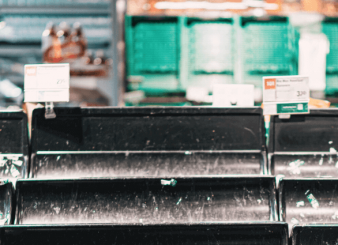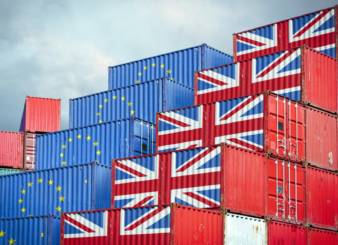Avoiding the use of technology in our day-to-day lives is nigh-on impossible nowadays. And the story isn’t much different when it comes to supply chain.
In fact, technology can massively help with the creation and distribution of goods throughout the supply chain process. As a result, many in-the-know insiders have pinpointed supply chain as one sector which could benefit from the use of blockchain.
If you’re out of the loop where blockchain’s concerned, it’s simple technology which underpins digital or cryptocurrency, allowing for digital info to be distributed and updated in real-time. And the name? That comes from the ‘blocks’ that are added to ‘chain’ of info to be verified and authenticated.
But how can this help the supply chain sector?
Well, for a start, blockchain could speed up, manage, and update otherwise time-consuming processes like the verification of ID, bank details and certifications. Put this into the context of uploading new suppliers: manual onboarding time could be slashed significantly. And given supply chain’s tendency to span international borders, getting the latest information processed in the quickest way possible is paramount to maintaining efficiency and accuracy.
(Related: See what exciting Supply Chain and Procurement opportunities we have at Vertical Advantage now)
In August 2019, IBM alongside partners like GlaxoSmithKline, Lenovo and Nokia to name but a few, announced a new blockchain network: Trust Your Supplier.
The aim?
To reduce the time taken for supplier onboarding as well as to mitigate against fraud or human error. Not only will this make the supply chain process more efficient, but it’ll also reduce labour costs and, as data intelligence improves, boost performance, ensure fewer losses, and identify new issues which can then be addressed and resolved. Beyond that, tracking costs could be streamlined, auditing functionality improved, and demand estimates honed and met with ease.
Nevertheless, as with all technology, downsides are inevitable. Firstly, the move to automated processes will lead to not insignificant job losses within the admin sector and specific roles may need reconsidering as a result. Secondly, workers will need to get to grips with the admittedly overwhelming-at-first blockchain system and processes. We’re not saying you need to have a Bill Gates-level knowledge of blockchain’s ins and outs but, still.
Finally, although blockchain has been around since 2009, it remains a relatively new and untested technology, which would require thorough vetting before being rolled out across the supply chain sector. Basically, it’s far from a quick fix.
Even so, the potential applications of blockchain within the supply chain sector are substantial and worth keeping on your radar in the coming years.









